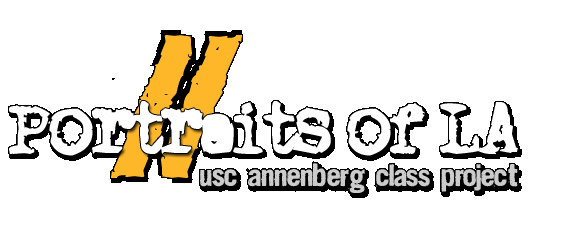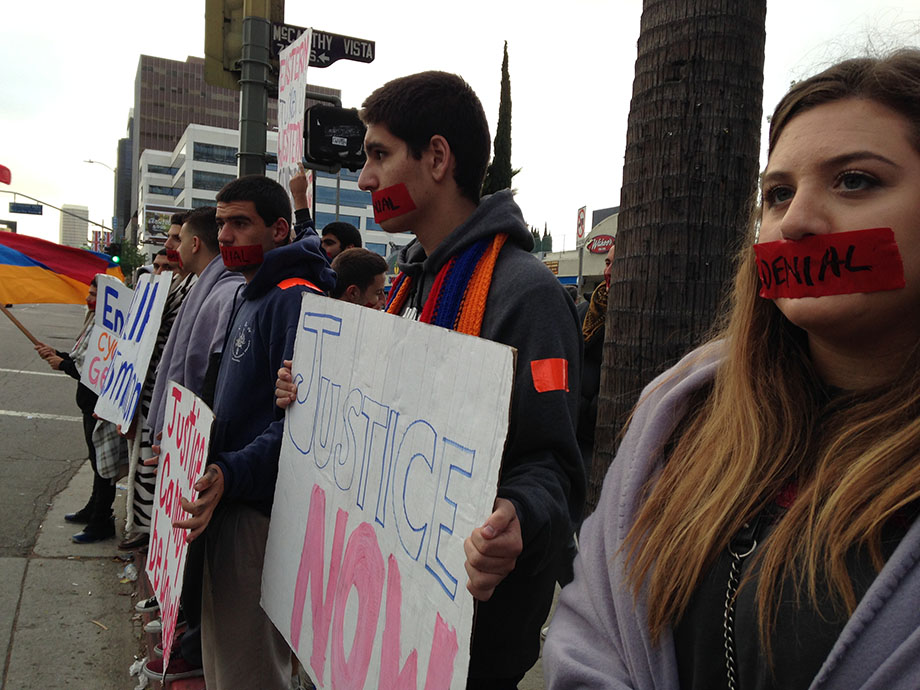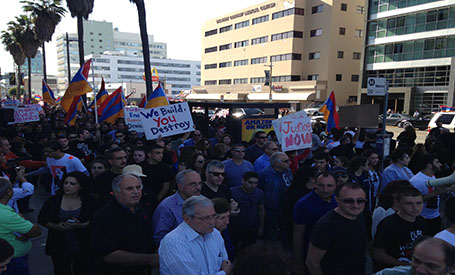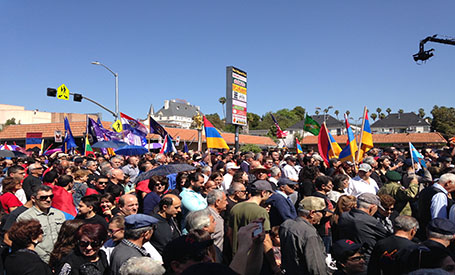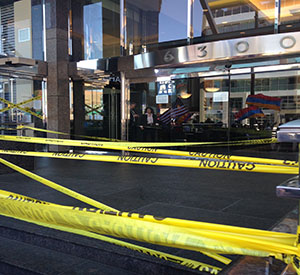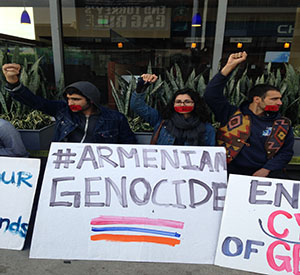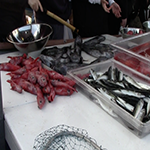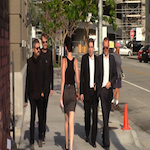VIDEO: 99th Anniversary of Armenian Genocide
A non-profit organization that helps underprivileged kids ages 8-21 years old in South Los Angeles. APCH prides itself on being a "safe heaven" for children.
Fish are as slippery to catch as they are to sustain, but experts say consumers are in full control of managing the demand that keeps our oceans from depleting in supply.
Just a compliment or something more harmful? Almost every woman has been cat-called or harassed on the street in her lifetime. For many, this occurrence affects their daily lives. This project explores the how and why this happens through the stories of women who experience it firsthand.
By Ani Ucar
Looking ahead, it will have been 100 years, 1,200 months, 36,524 days and one word- ‘genocide.’
Every April 24th, Armenians and supporters all across the world take to the streets to remember those who were lost during the 1915 Armenian Genocide and to protest the Turkish government’s rejection of the use of that very word.
The word carries feelings of sadness, frustration, passion and anger for many Armenians who think about the history of their ancestors during the First World War.
The legal definition of the word is “any of the following acts committed with intent to destroy, in whole or in part, a national, ethnical, racial or religious group, as such: killing members of the group; causing serious bodily or mental harm to members of the group; deliberately inflicting on the group conditions of life calculated to bring about its physical destruction in whole or in part1; imposing measures intended to prevent births within the group; [and] forcibly transferring children of the group to another group," according to the United Nations.
That definition has been the center of conflict between Turkey and Armenia for nearly a century, but the response and reaction is almost the same with every year that passes.
Although the Turkish Consulate rejected to do an on-camera interview for safety precautions, they did however respond to questions via email. In regards to the definition of genocide, they had this to say:
“First, no direct evidence has been discovered demonstrating that any Ottoman official sought the destruction of the Ottoman Armenians as such. Second, Ottoman Armenian Dashnak and Hunchak guerrillas and their civilian accomplices admittedly organized political revolutionary groups and waged war against their own government. Only in the 1915 Armenian revolt in Van province at least 60,000 Muslims were killed by these guerilla groups. Under these circumstances, it was the Ottoman Armenians’ violent political alliance with the Russian forces, not their ethnic or religious identity, which rendered them subject to the relocation.”
Despite Turkey’s argument, more than 40 U.S. states and 20 countries have officially recognized the events as genocide.
However, even with the large number of states backing the recognition, the U.S. has yet to acknowledge it at a federal level.
“Until all governments including the U.S. and Turkey acknowledge and condemn this great crime against humanity we cannot heal completely and move beyond our violent past,” said Councilmember Mitch O’Farrell of Los Angeles City Council District 13.
The 13th district is home to Little Armenia, the only designated Armenian community in the country.
For Glendale Mayor, Zareh Sinanyan, he says this year is just as important as all the others. As the mayor of the city with one of the largest Armenian populations in the country, Sinanyan says he feels the same amount of pressure everyday to seek change, regardless of any big anniversaries.
“Its about justice. It’s about history. It’s about taking ownership of your ancestry. It’s about heritage. It’s about moral values,” he said.
Days before the 99th anniversary, the Armenian Film Foundation delivered 420 digitized genocide survivor testimonies to the USC Shoah Foundation. All of the survivors featured in the recordings are no longer living.
“Completing this now in the run up to the 100th is one more thing that is really going to make it difficult for Turkey to continue its denial,” said Jerry Papazian, chairman of the Armenian Film Foundation. “It’s going to be hard for them to deny Steven Spielberg. It’s going to be hard for them to deny the Shoah Foundation.”
The Shoah Foundation has been committed to archiving the testimonies of all genocide and holocaust survivors in a way that is both educational and user-friendly.
“I think one of the key building blocks of this is knowledge and education,” said Stephen Smith, executive director of the USC Shoah Foundation. “Because these testimonies…live not only in the archive here, but across the university network that the USC Shoah Foundation services…what happens is that you create an undeniable fact of the existence of genocide.”
Congressman Adam Schiff, who represents California’s 28th District, has been a major proponent in the fight to getting official recognition on the state level.
“If we’re going to have the kind of moral leadership to speak out on human rights as a nation, if we ‘re going to continue to be a preeminent voice for human rights, we cant discriminate when it comes to recognition of genocide,” he said.
For years, he has lobbied for legislation in support of the Armenian fight.
Schiff has gone so far as to speak on the Senate floor in Armenian, a language far from his native tongue.
"I am not a descendant of the fallen, but I speak to you in their beautiful language because on this day, we are all Armenian,” he said in Armenian as part of his speech on the House floor on the 97th anniversary. “And not just on this day. Whenever we speak out against mass murder, whenever we refuse to be cowed into silence, we are all Armenian.”

